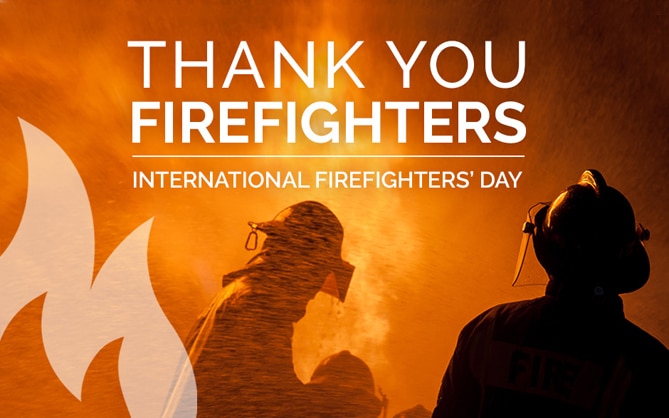by California Casualty | Behind the Scenes, Calcas Connection |

Beau Brown
Chief Executive Officer
Spring is when we at California Casualty take a moment to reflect on the previous year and look forward to new ways of serving you.
We’ve just held 2019 kickoff gatherings in our Claims, Customer Service, Partner Relations, Sales and Underwriting departments. Teams came together to share experiences, discuss areas of improvement, and detail new initiatives, with the common goal of providing the protection and service that you deserve.
Exceptional customer experience is our priority. From implementing updated software, streamlined processes, and lessons learned, we are well-equipped for this year and the future.
Staying true to our 105-year history of personalized care, California Casualty is finding innovative ways to continue to follow our founding principles of putting the customer first, and delivering on our obligations with high ethics and business integrity.
In his 2019 message to the company, fourth-generation CEO, Beau Brown, highlighted how proud he felt watching employees come together for policyholders following the various disasters of 2018: Hurricanes Florence and Michael, damaging Rocky Mountain hailstorms, and deadly fires in California.
Beau recognized the concerted effort by everyone at California Casualty, saying, “While many of our employees did not directly talk to customers in the aftermath of these disasters, you all did your part to support what was a company-wide team effort to fulfill our promises. I am very proud of everyone who gave so much to serve the people we insure. Thank you.”
While other companies are focusing more on profits, we remain steadfast in our focus on you. As the year progresses, we’ll share more details surrounding the initiatives that will directly impact you as we improve our way of doing business. These will include easier-to-read policy documents, less paperwork, and quicker conversations as our systems improve. It’s how we plan to maintain some of the best Customer Service and Claims satisfaction ratings in the industry – which were 98 percent and 96 percent, respectively, for 2018.
TAKEAWAY:
Read more about California Casualty, our people and our mission to help others in our Annual Report, found at https://www.calcas.com/Our-Company.

by California Casualty | Firefighters |
The role of a firefighter in today’s society – be it urban, rural, natural environment, volunteer, career, industrial, defence force, aviation, motor sport, or other is one of dedication, commitment and sacrifice – no matter what country we reside and work in. In the fire service we fight together against one common enemy – fire – no matter what country we come from, what uniform we wear or what language we speak. –Lt JJ Edmondson, 1999 best firefighter quotes
When a man becomes a fireman his greatest act of bravery has been accomplished. What he does after that is all in the line of work. –Edward F. Croker
I can think of no more stirring symbol of man’s humanity to man than a fire engine. –Kurt Vonnegut
Neither fire nor wind, birth nor death, can erase our good deeds. –Buddha
More often than not, a hero’s most epic battle is the one you never see; it’s the battle that goes on within him or herself. –Kevin Smith
Becoming fearless isn’t the point. That’s impossible. It’s learning how to control your fear, & how to be free from it, that’s the point. Necessity of action takes away the fear of the act, and makes bold resolution the favorite of fortune. –Francis Quarles
That’s the life, being a fireman. It sure beats being a ballplayer. I’d rather be a fireman. –Ted Williams, Boston Red Sox
If Prometheus was worthy of the wrath of heaven for kindling the first fire upon earth, how ought all the gods to honor the men who make it their professional business to put it out? –John Godfrey Saxe
The bravest are surely those who have the clearest vision of what is before them, glory and danger alike, and yet notwithstanding, go out to meet it. –Thucydides
True courage is being afraid, and going ahead and doing your job anyhow. That’s what courage is. –General Norman Schwarzkopf
A hero has faced it all: he need not be undefeated, but he must be undaunted. –Andrew Bernstein
The hero is the man who lets no obstacle prevent him from pursuing the values he has chosen. –Andrew Bernstein
Aspire rather to be a hero than merely appear one. –Baltasar Gracian
I think a hero is an ordinary individual who finds strength to persevere and endure in spite of overwhelming obstacles. –Christopher Reeve
Real heroes are men who fall and fail and are flawed, but win out in the end because they’ve stayed true to their ideals and beliefs and commitments. –Kevin Costner
A hero is no braver than an ordinary man, but he is brave five minutes longer. –Ralph Waldo Emerson
A hero is someone who has given his or her life to something bigger than oneself. –Joseph Campbell
Hard times don’t create heroes. It is during the hard times when the ‘hero’ within us is revealed. –Bob Riley
If the smoke is moving faster than you can, you have been warned! –”The Art of Reading Smoke”
Out of this nettle, danger, we pluck this flower, safety. –William Shakespeare
Man is the only creature that dares to light a fire and live with it. The reason? Because he alone has learned to put it out. –H.J Vandyke
To me, there’s only 5 real jobs in America: Police Officers, Teachers, Firefighters, Doctors, and the Military Service. –Charles Barkely
And where two raging fires meet together, they do consume the thing that feeds their fury. –William Shakespe
Courage is fear holding on a minute longer. –General George Patton
Courage isn’t that you can see what lies ahead; courage means you will advance not knowing but doing at all costs. –Byron Pulsifer
Firefighters never die, they just burn forever in the hearts of the people whose lives they saved. –Susan Murphree
The truth about plume dominated fire is like a forward pass in football. Three things can happen and two of them are bad. –R. Rothermel
The most tangible of all visible mysteries – fire. –Leigh Hunt
Waiting, prepared to serve, is serving. –Chief Mike West best firefighter quotes
Untutored courage is useless in the face of educated bullets. –George S. Patton
There are no new lessons to be learned from this fire; only old lessons that tragically went unheeded. –Percy Bugbee
Bravery is being the only one who knows you’re afraid. –Franklin P. Jones
Bravery is the capacity to perform properly even when scared half to death. –Omar Bradley
I have no ambition in this world but one, and that is to be a fireman. The position may, in the eyes of some, appear to be a lowly one; but we who know the work which the fireman has to do believe that his is a noble calling. Our proudest moment is to save lives. Under the impulse of such thoughts, the nobility of the occupation thrills us and stimulates us to deeds of daring, even of supreme sacrifice. –Chief Edward F. Croker
Fight till the last gasp. –William Shakespeare
Moral excellence comes about as a result of habit. We become just by doing just acts, temperate by doing temperate acts, brace by doing brave acts. –Aristotle
The brave man is not he who feels no fear, for that were stupid and irrational; But he, whose noble soul its fear subdues, and bravely dares the danger nature shrinks from. –Joanna Baillie
Where fear is present, wisdom cannot be. –Lucius C. Lactantius
Brave men are all vertebrates; they have their softness on the surface and their toughness in the middle. –G.K. Chesterton
We deceive ourselves when we fancy that only weakness needs support. Strength needs it far more. –Madame Swetchine
The whole secret of existence is to have no fear. –Buddha
No path of flowers leads to glory. –Jean de La Fontaine
Nothing happens to anybody which he is not fitted by nature to bear. –Marcus Aurelius Antoninus
Be bold and mighty powers will come to your aid. –Basil King
Character is not made in a crisis it is only exhibited. –Rose Dorothy Freeman
There are no great men, only ordinary men, who have met extraordinary challenges. –Admiral Halsey
A plan is nothing; planning is everything. –General Dwight D. Eisenhower
Courage is fear holding on a minute longer. –General George Patton
In nature there are neither rewards nor punishments – there are consequences. –Robert Ingersol
Courage is resistance to fear, the mastery of fear — not the absence of fear. –Mark Twain
Rather fail with honor than succeed by fraud. –Sophocles
The pursuit of excellence is gratifying and healthy. The Pursuit of perfection is frustrating, neurotic and terrible waste of time. –E. Bliss
None of us is as smart as all of us. –Eric Schmidt best firefighter quotes
Success is a little like wrestling a gorilla. You don’t quit when you are tired — you quit when the gorilla is tired. –Robert Strauss
Don’t prepare. Begin. Our enemy is not lack of preparation. The enemy is resistance, our chattering brain producing excuses. Start before you are ready. –Steven Pressfield
Never stand begging for that which you have the power to earn. –Miguel De Cervantes
A superior person is one who when safe does not forget about danger, and who in times of order does not forget about disorder. –Chinese Song dynasty
Leadership is a combination of strategy and character. If you must be without one, be without the strategy. –Norman Schwarzkopf
The man who really counts in the world is the doer, not the mere critic-the man who actually does the work, even if roughly and imperfectly, not the man who only talks or writes about how it ought to be done. –Theodore Roosevelt
Training produces the skills; Circumstance provides the opportunity; Experience instills true knowledge. –Unknown
I think that anyone who says that he can predict a fire season with any accuracy has to be either absolutely brilliant, or God’s own fool and I’m not either one. So I’m not even gonna try. –Unknown
In fire you can plan everything out to the minute, and a minute before that — everything changes. –Dan Felix
I learned that courage was not the absence of fear, but the triumph over it. –Nelson Mandela
One of the greatest discoveries a man makes, one of his great surprises, is to find he can do what he was afraid he couldn’t do. –Henry Ford
Experience is not what happens to a man; it is what a man does with what happens to him. –Aldous Huxley
None knows the weight of another’s burden. –George Herbert best firefighter quotes
When you are making a success of something, it’s not work. It’s a way of life. You enjoy yourself because you are making your contribution to the world. –A Granatelli
A great deal of talent is lost in the world for want of courage. –S. Smith
An effective human being is a whole that is greater than the sum of its parts. –Ida P. Rolf
There is some place where your specialties can shine. Somewhere that difference can be expressed. It’s up to you to find it, and you can. –David Viscott
When the deepest part of you becomes engaged in what you are doing… you are doing what you were meant to be doing. –Gary Zukav best firefighter quotes
The majority of people perform well in a crisis and when the spotlight is on them; it’s on the Sunday afternoons of this life, when the nobody is looking, that the spirit falters. –Alan Bennett
Success comes in a lot of ways, but it doesn’t come with money and it doesn’t come with fame. It comes from having a meaning in your life, doing what you love and being passionate about what you do. That’s having a life of success. When you have the ability to do what you love, love what you do and have the ability to impact people. That’s having a life of success. That’s what having a life of meaning is. –Tim Tebow
Enjoy when you can, and endure when you must. –Johann Wolfgang von Goethe
One can be a brother only in something. Where there is no tie that binds men, men are not united but merely lined up. –Antoine De Saint-Exupery
If you fell down yesterday, stand up today. –H. G. Wells best firefighter quotes
There is nothing noble in being superior to some other person. The true nobility is in being superior to your previous self. –Ernest Hemingway
True wisdom comes to each of us when we realize how little we understand about life, ourselves, and the world around us. –Socrates
It does no harm just once in a while to acknowledge that the whole country isn’t in flames, that there are people in the country besides politicians, entertainers, and criminals. –Charles Kuralt
Mistakes are always forgivable, if one has the courage to admit them. –Bruce Lee best firefighter quotes
There are some things you learn best in calm, and some in storm. –Willa Cather
Confidence is the most important single factor in this game, and no matter how great your natural talent, there is only one way to obtain and sustain it: work. –Jack Nicklaus
best firefighter quotes

by California Casualty | Educators |
Our Education Blogger is a public school teacher with over a decade of experience. She’s an active NEA member and enjoys writing about her experiences in the classroom.
Your personal life is yours, and it is precious. It is also necessary. Especially during winter break. There is no need to feel guilty about leaving work behind each day when you exit your classroom door. Enjoying your time outside of school makes you a better teacher. Relationships with students, parents, and colleagues may also improve when you maintain a balance between work and home. Over the years, I have learned, but not yet quite mastered, several ways to create a balance between my work life and home life.
Don’t Give Out Your Personal Information To Parents or Students
If you must communicate with parents and students outside of the school day, sign up for a social media account you can use for your classroom. Don’t give out your personal phone number, email address, or home address. Many parents and students are able to set respectful boundaries. However, there may be some parents or students who will abuse this communication privilege. This can sour your relationship with a parent or student if they continue to overuse your attempt to be “available.” You don’t want to find yourself in a sticky situation that could get you into trouble.
Keep Work At Work
Leave all of your grading and planning at school. Home should be your sanctuary, not a second office. Your family, pets, and brain will thank you for it.
Maintain Consistent Work/Office Hours
Try to arrive and leave at the same time each day. Make sure parents, students, and colleagues are aware of your daily “office hours.” Each day, I make a point to arrive no later than 7:15am and leave no later than 4:30pm. My “office hours” are 7:30-7:50am and 3:15-4:00pm. If a parent or student needs to meet with me, they know when I will be available.
Enjoy Family Time
Savor each moment you have with your own family. I love my job, and I adore my students, but I refuse to sacrifice precious time with my own family. I can never get that special time back. Grading papers, planning lessons, and returning emails can wait until the next day. So, file away those tender memories with your family without the guilt.
Protect Your Personal Social Media Accounts
Being “friends” on your personal social media with students and parents is not required. I am protective of myself and my family, so I stick to a few of my own rules for my personal social media account:
1) never be friends with a current student
2) students must be at least 13 years old (most social media services and apps require users to be 13 years old to join)
3) never be friends with a current student’s parent(s) or other family members
4) keep profile set to private
Social media can bring with it negative talk, upset feelings, and online bullying. I have no desire to get myself, or my family, involved in anything of the sort.
Don’t Check Work Email At Home
I review my work email on my school computer throughout the day, and in the moments before I shut the computer down to leave for the day. Then, I don’t check it until I arrive at school the following day. I used to have my work email synced to my personal cell phone. Big mistake. I found myself getting emotionally worked up at home about the occasional negative email from a parent or colleague. When there were “security” threats to our district email system (mostly viruses), my personal phone, along with all of my personal accounts, were at risk. Forget about sleeping when all I can think about is how I’m going to respond to the angry parent, or wondering if my phone would be affected because of a naive colleague who opened an email attachment from an unknown sender! Ditching my access to work email from home has significantly lowered my stress level (and I’ve even gotten a few more zzzz’s)!
Recruit Help
It’s okay to ask for help. Get a neighbor, a friend, a babysitter, or a grandparent to help you out at home if you need it. You aren’t superhuman! We all need a little extra support from time to time.
Be Realistic
Be realistic about what you can and can’t do. There may be nights that you won’t be able to cook dinner. That’s what delivery and take-out are for! It’s okay to bring a frozen, microwave meal for lunch (although that 5-minute cook time really eats into my lunch time). I promise, no one will judge you! Yes, it’s okay for dirty laundry to sit around in the hamper for a few days. You’ll get to it when you can.
Be Disciplined
Stick to it and mean it. If you crave more personal time, then be picky about your work hours, how you spend your time outside of school, and choosing to leave work at work. If you don’t think you can be disciplined, ask someone to help you by holding you accountable. Your partner or spouse can make sure you’re not checking work email, or bringing home papers to grade. Your best friend can check in on you to see if you’re keeping the right company on social media.
We’d love to hear from you! How do you create a balance between work and home?
This article is furnished by California Casualty, providing auto and home insurance to educators, law enforcement officers, firefighters and nurses. Get a quote at 1.866.704.8614 or www.calcas.com.
 Seeing a wall of flames or a madly spinning tornado bearing down on your community or neighborhood is the worst time to wonder, “Do I have enough insurance to build my home again?”
Seeing a wall of flames or a madly spinning tornado bearing down on your community or neighborhood is the worst time to wonder, “Do I have enough insurance to build my home again?”



